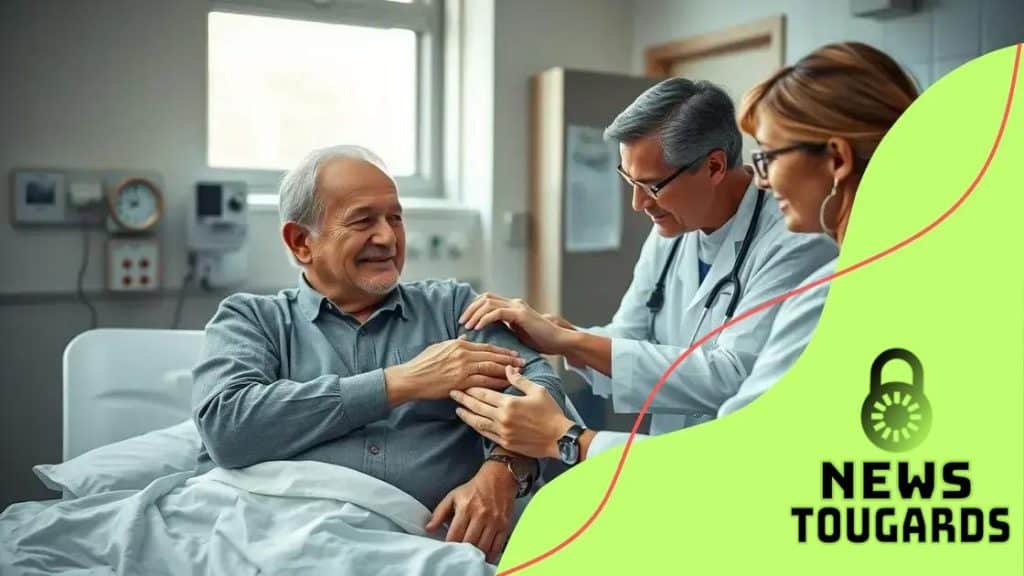Federal support for veterans’ medical care in 2025

Federal support for veterans’ medical care in 2025 includes expanded access to services, innovative treatment options, and improved mental health resources, significantly enhancing health outcomes for veterans.
Federal support for veterans’ medical care in 2025 is set to play a crucial role in enhancing healthcare services for those who served our country. Are you aware of the potential changes that could benefit veterans? Let’s explore what this means for them.
Overview of federal support for veterans
The Overview of federal support for veterans provides insight into the programs designed to assist those who defended our nation. Understanding these support mechanisms is essential for veterans seeking help and benefits.
Types of Support Available
Federal support encompasses various programs tailored to meet the needs of veterans. These include healthcare, financial assistance, and educational benefits. Each program aims to improve the quality of life for veterans and their families.
- Healthcare services: The Department of Veterans Affairs (VA) offers comprehensive medical care and mental health services.
- Financial assistance: Programs like pension benefits and disability compensation provide financial support.
- Education programs: The GI Bill helps cover tuition costs for veterans pursuing higher education.
In addition to these programs, there are also initiatives aimed at helping veterans transition to civilian life. Resources are available to assist with job placement, vocational training, and counseling services.
Importance of Navigating Benefits
Understanding how to navigate these federal programs is crucial for maximizing support. Veterans often face challenges in connecting with the resources available to them. Many may not know how to apply for benefits or feel overwhelmed by the process.
To make the most of these opportunities, veterans should seek guidance from veteran service organizations (VSOs). These organizations can help clarify eligibility requirements and assist in completing applications for benefits.
Having access to federal support can make a significant difference in the lives of veterans. Whether it is securing necessary healthcare or obtaining educational assistance, these programs are essential for promoting well-being and success.
The ongoing support from the federal government is a critical element in ensuring that veterans receive the care they deserve. As policies evolve, staying informed about available resources will empower veterans to take full advantage of their entitlements.
Key changes in medical care for veterans in 2025
In 2025, significant changes in medical care for veterans will take place, aiming to enhance the quality and accessibility of healthcare services. These updates reflect a commitment to provide veterans with the best possible care.
Expanded Access to Services
One of the key changes will include expanded access to healthcare services for veterans. More facilities will be equipped to offer specialized treatment options tailored to the unique needs of veterans. This development is crucial for ensuring veterans have time-sensitive access to necessary care.
- Increased telehealth options: Many veterans will now be able to access medical services remotely, making it easier to consult with healthcare providers.
- New partnerships with community hospitals: Collaborations with local hospitals will enhance service availability, especially in rural areas.
- Improved mental health services: Significant resources will be directed toward enhancing mental health programs and support networks.
As these enhancements roll out, a seamless transition will be necessary to help veterans understand their new options. Ongoing education regarding the services available will be vital in ensuring they can take full advantage of these changes.
Innovative Treatment Approaches
Another focus area will be the incorporation of innovative treatment approaches in veteran care. This includes the integration of advanced technology and modern medical practices. Veterans can expect access to cutting-edge treatments and therapies designed to address both physical and mental health challenges.
For instance, the use of artificial intelligence (AI) in diagnostics and treatment planning is becoming more common. Such technology can lead to more personalized and effective care for veterans. Holistic approaches that take into account overall wellness will also gain traction, promoting a comprehensive understanding of health.
In addition to these advancements, there will be a renewed focus on preventive care. Veterans will be encouraged to engage in regular health screenings and wellness checks, which can lead to early detection of potential health issues.
How to navigate the application process for benefits

Navigating the application process for benefits can be challenging for veterans. Understanding the steps involved is key to successfully obtaining the federal support they need. Many veterans might feel overwhelmed, but there are clear pathways to follow.
Step-by-Step Guide to Applying
Following a structured approach can make the application process smoother. Here are the essential steps to consider:
- Gather necessary documentation: Prepare important documents such as your service record, discharge papers, and any medical records.
- Determine eligibility: Familiarize yourself with the eligibility criteria for the specific benefits you are applying for. This can vary based on the type of support.
- Complete the application: Fill out the necessary forms accurately and thoroughly. Make sure to double-check for any errors.
Each of these steps is crucial in ensuring a successful application. Skipping or overlooking details can lead to delays or denial of benefits.
Utilizing Available Resources
Veterans should take advantage of various resources dedicated to assisting with the application process. This includes reaching out to veteran service organizations (VSOs) that provide free help. These groups offer guidance through the entire process, ensuring that veterans get the support they deserve.
Additionally, veterans can visit the official VA website for resources and tools tailored to help with applications. Regularly attending workshops or informational sessions can also provide valuable insights and tips for a successful application.
It’s important to stay organized throughout the process. Keeping a checklist of required documents and deadlines can help maintain focus and reduce stress. By understanding the application process and utilizing available resources, veterans can enhance their chances of receiving timely benefits.
Impact of federal funding on health outcomes
The impact of federal funding on health outcomes for veterans is significant. Increased financial support from the government directly influences the quality of care available to veterans. This funding ensures that veterans receive timely and effective treatments that can lead to better health results.
Key Areas Affected by Funding
Federal funding enhances several key areas in veteran healthcare. These areas include medical facilities, research, and mental health services. Understanding how this financial support is utilized helps in appreciating its value in improving health outcomes.
- Upgrading medical facilities: Funds allow for modern renovations and technological upgrades in hospitals and clinics. This access leads to improved treatment options.
- Supporting medical research: Federal grants promote research into conditions that specifically affect veterans, leading to new treatments and therapies.
- Enhancing mental health services: Allocated funding helps provide better mental health support, focusing on trauma and PTSD, which are common among veterans.
As funding continues to increase, the potential for improved health outcomes grows. Ensuring veterans have access to the best possible care is essential for their overall well-being.
Measuring Health Outcomes
Monitoring the effectiveness of federal funding on health outcomes involves specific metrics. These include hospitalization rates, recovery times, and patient satisfaction scores. By analyzing these key indicators, officials can assess how well federal funding translates into real improvements in veterans’ health.
Veterans have reported greater satisfaction with their healthcare quality, which is directly linked to the resources made available through funding. When budget allocations prioritize veteran health, the overall impact is felt across communities. Access to comprehensive care directly correlates with improved health metrics and longer, healthier lives for veterans.
Continued investment in veteran healthcare is crucial. It can lead to breakthroughs in treatment and recovery that enhance the life quality of those who served.
Resources for veterans seeking medical assistance
Accessing resources for veterans seeking medical assistance is essential for ensuring they receive the care they need. Many veterans may not be aware of the multitude of resources available to support their health and wellness.
Veteran Service Organizations
Veteran Service Organizations (VSOs) play a vital role in helping veterans navigate their healthcare options. These organizations offer a range of services, including:
- Personalized assistance: VSOs provide one-on-one support in understanding benefits and applying for medical care.
- Workshops and community events: Many VSOs host events to educate veterans on available resources and health topics.
- Advocacy: They advocate for veteran rights and work to ensure that veterans receive the benefits they deserve.
VSOs are a great starting point for veterans who need help with their medical situations. They are knowledgeable and can offer crucial guidance.
Online Resources
The internet provides various online resources for veterans looking for medical assistance. Websites dedicated to veteran care can be a valuable tool. They often include:
- Information on benefits: Detailed descriptions of available healthcare benefits and how to access them.
- Directories of local services: Lists of nearby hospitals, clinics, and specialists who focus on veteran care.
- Health tips: Guidance on maintaining wellness and resources for managing specific health conditions.
Moreover, the official VA website is an excellent resource for up-to-date information and tools to assist veterans in accessing healthcare services. Regularly checking this site can keep veterans informed about new programs and changes in benefits.
For immediate concerns, the Veterans Crisis Line is available for veterans in need of urgent mental health assistance. This confidential support service connects veterans with trained professionals who can help.
Leveraging these resources can greatly enhance a veteran’s ability to find the medical assistance they require. With the right support and information, veterans can achieve better health outcomes and improve their quality of life.
In conclusion, veterans have access to numerous resources that can greatly assist them in navigating medical care and benefits. By utilizing organizations that support veterans and taking advantage of online resources, they can more easily find the help they need. Federal funding continues to improve health outcomes, ensuring that veterans receive high-quality care. As veterans take steps to understand and use these resources, they empower themselves and improve their quality of life.
FAQ – Frequently Asked Questions about Resources for Veterans’ Medical Assistance
What are Veteran Service Organizations (VSOs)?
VSOs are organizations that provide personal assistance to veterans in understanding and applying for their medical and benefits services.
How can I find resources for veterans online?
You can find resources through dedicated websites that list benefits, local services, and wellness tips specifically for veterans.
Is there an official site for veteran benefits information?
Yes, the official VA website offers the latest information on benefits, programs, and resources available for veterans.
What should I do in a mental health crisis?
If you are in a mental health crisis, you can contact the Veterans Crisis Line for immediate support and assistance from trained professionals.





